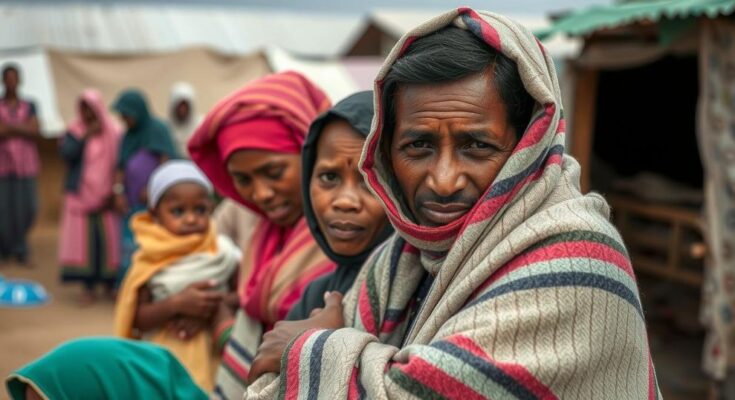The UNHCR report underscores the dual challenges faced by refugees due to climate change and violent conflict, with millions affected globally. Key findings illustrate that most refugees reside in developing nations highly susceptible to environmental hazards, while international efforts aim to increase funding and support for climate adaptation and refugee resilience.
A recent report from the United Nations High Commissioner for Refugees (UNHCR) highlights the harrowing challenges faced by refugees due to the interplay of climate change and violence. Refugees are increasingly caught between climate-related disasters and violent conflicts prevalent in their home countries, particularly in regions such as Sudan, Somalia, and Myanmar. Filippo Grandi, the UNHCR Chief, stated in the report’s foreword that individuals forced to flee their homes are at the epicenter of this crisis. Nearly 75% of refugees reside in developing nations, where exposure to climate hazards is significantly heightened.
The report reveals stark statistics: 120 million individuals have been forcibly displaced due to conflicts, while approximately 220 million people have relocated within their countries because of climate-induced disasters. The surging global temperatures, with 2023 registering as the hottest year on record, exacerbate the situation. Sarah Kapnick, NOAA’s Chief Scientist, remarked that this warming necessitates preparation for the increasing frequency and severity of climate-related emergencies.
Furthermore, those in low-income countries are increasingly strained by social turmoil and frequent climate crises. Andrew Harper, the UNHCR’s special advisor on climate action, emphasized that refugees are often resettled in hazardous areas, lacking vital infrastructure to cope with the worsening impacts of climate change. He stated, “We are seeing across the board, a hellish situation become even tougher.”
The international community is beginning to address this escalating crisis. At the recent COP29 meeting in Baku, Azerbaijan, nations committed to earmarking $300 billion by 2035 for vulnerable countries. Additionally, UNHCR outlined objectives aimed at supporting those most at risk, promoting climate-smart sustainable practices, and enhancing overall resilience. Najeeba Wazefadost of Refugees for Climate Action implored leaders to actively consider refugee narratives and adopt solutions that empower those affected.
The challenges faced by refugees due to climate change and conflict are worsening globally. As refugees flee their homes, they often encounter new struggles related to environmental disasters exacerbated by climate change. These challenges highlight the urgent need for recognition and action to support the millions displaced. The UN and related organizations are increasingly calling for global cooperation to address these intertwined crises.
The interplay between climate change and violent conflict has positioned refugees in increasingly perilous circumstances. The reports from UNHCR underscore a pressing need for both immediate aid and systematic solutions to mitigate risks faced by these vulnerable populations. Enhanced international funding and proactive policies are crucial in addressing climate adaptation and ensuring that refugees receive necessary support.
Original Source: www.thecooldown.com




